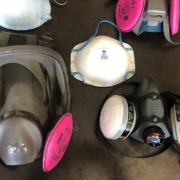EPA Issues Notice of Intent to Suspend the Herbicide DCPA
This announcement was published by the EPA on April 29, 2022. Click here for more information.
Today, the U.S. Environmental Protection Agency (EPA) is issuing a notice of intent to suspend (NOITS), which when effective, will prevent the sale, distribution, and use of the technical-grade product containing the pesticide dimethyl tetrachloroterephthalate (DCPA). Technical-grade products are high-concentration forms of pesticides that are formulated into other end-use pesticide products. EPA is issuing this NOITS for DCPA because AMVAC, the sole registrant, has not provided the full complement of data the Agency required it to submit over nine years ago. Under the Federal Insecticide, Fungicide, and Rodenticide Act (FIFRA), the registrant is required to submit data to support the continued registration of this product. Due to the registrant’s long-standing failure to respond to EPA’s requests for necessary data, the Agency is unable to fully evaluate the risks associated with DCPA.
DCPA is an herbicide applied to control grasses and certain broadleaf weeds in both agricultural and non-agricultural settings. Agricultural use sites include cole crops (e.g., broccoli, kale, cabbage), cucurbits, tomatoes, onions, and herbs. Non-agricultural use sites include non-residential turf and ornamentals.
As required by FIFRA, EPA periodically re-evaluates pesticides through registration review to ensure that risk assessments and pesticide decisions reflect the best available science. Part of the registration review process is to identify risks of concern and to implement actions that can mitigate these risks. To ensure access to the needed data, the Agency notifies registrants of the data requirements through issuance of a FIFRA Data Call-In Notice (DCI).
In 2013, EPA issued a DCI to AMVAC requiring it to submit more than 20 studies to support the existing registrations of DCPA. In the nine years since the requirements were imposed, the Agency has reviewed numerous insufficient studies provided by AMVAC, and also has evaluated more than 20 waiver requests seeking to remove these data requirements. In its attempts to obtain the needed data, EPA has spent its finite resources on these efforts to review the many submissions, some of which otherwise would have been used to focus on pesticide actions requested by other registrants and needed by growers.
The data required by EPA included a comprehensive study of the effects of DCPA on thyroid development and function in adults and before birth. In the absence of these data, EPA reviewed preliminary data submitted by AMVAC, which suggest that DCPA can affect thyroid function at lower doses than previously known, and that it may affect a fetus at lower doses than those that adversely affect adults. Without complete data on the thyroid toxicity of DCPA, the Agency is unable to complete the scientifically robust and defensible human health risk assessment needed to evaluate whether DCPA products continue to meet the standard for registration under FIFRA.
After 30 days, the NOITS will become final (subject to the conditions discussed below) and it will be illegal for the registrant to distribute, use, or sell its technical-grade DCPA pesticide product until EPA lifts the suspension. This means that once the technical-grade product is suspended, it will be illegal for AMVAC to use it to formulate the end-use products used by growers. Stocks of DCPA end-use pesticide products that have already been formulated prior to the suspension may continue to be distributed, sold, and used according to the label. If the suspension continues and the existing stocks are depleted, users may not have access to end-use product. However, under FIFRA the suspension will not become final if within 30 days from issuance of the NOITS, one of the following two things happens:
- AMVAC submits all the required data, and EPA determines that it has fully complied with the DCI requirements that served as a basis for the NOITS; or
- Consistent with FIFRA requirements, AMVAC or a person adversely affected by the Notice makes a timely and adequate request for a hearing. A hearing must be held and a determination on the suspension issued within 75 days after receipt of a hearing request, unless all parties stipulate to such an extension.
If the registrant submits the missing data after the suspension becomes effective, EPA can lift the suspension. Upon publication of the NOITS in the Federal Register, all supporting documents will be available in the DCPA registration review docket EPA-HQ-OPP-2011-0374 at www.regulations.gov.







